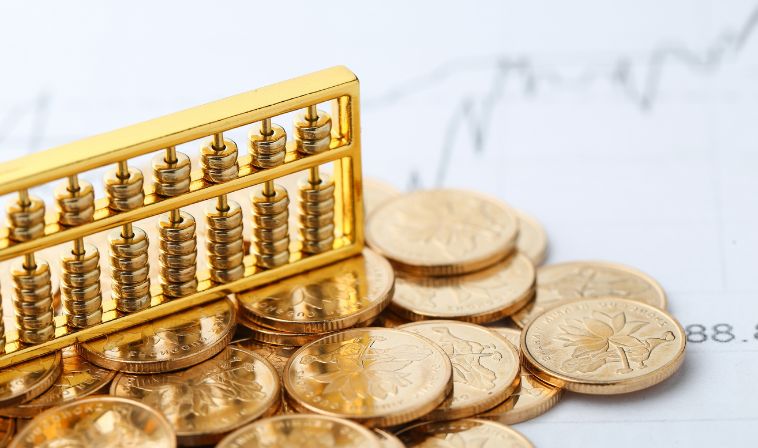What Are The Pros And Cons Of Investing In Physical Precious Metals?
16 August 2025
5 Mins Read

- What Are The Advantages Of Investing In Physical Precious Metals?
- 1. Stability And Wealth Preservation:
- 2. Portfolio Diversification And Risk Management:
- 3. Inflation Hedge And Economic Uncertainty Protection:
- 4. Scarcity And Tangible Asset Value:
- What Are The Disadvantages Of Investing In Physical Precious Metals?
- 1. Liquidity Issues And Market Fluctuations:
- 2. Storage, Insurance, And Upfront Costs:
- 3. Lack Of Passive Income Generation:
- Comparisons With Other Investment Options:
- Investing In Physical Precious Metals Isn’t For Everyone!
When people talk about “safe” investments, gold and silver almost always make the list. They’ve got that old-world charm, the “I can actually hold it in my hand” factor, and they feel like a shield against shaky markets. If you’re tired of staring at numbers on a screen, owning physical precious metals can feel refreshingly real. But—like most things in investing—it’s not all sunshine and sparkle.
Sure, you’re not just trusting a digital promise; you’re holding a tangible asset. That can protect you from inflation and give you peace of mind when markets get jumpy. But there are also costs, quirks, and a few headaches along the way.
Some investors find value in using established resources, such as a GMRGold gold investment firm, or look to professionals who specialize in precious metals. These pros help you choose between gold, silver, platinum, palladium, and show you safe, sensible ways to fit metals into your portfolio. They’ll walk you through what works for long-term goals—and what doesn’t.
Owning metal can be a way to stay independent from banks and traditional financial systems. Just remember: once you own it, you’ve got to store it, protect it, and eventually figure out how to sell it. The trade-offs are worth knowing before you buy your first shiny coin.
So, if you are thinking about investing in physical precious metals, then you have come to the right place! Today, I’ll touch upon the advantages and disadvantages of making such an investment.
What Are The Advantages Of Investing In Physical Precious Metals?
Let’s be honest—there are some pretty compelling reasons people keep coming back to gold, silver, and friends. They’re known for protecting wealth, lowering risk, and giving you a little extra calm during stormy economic weather.
1. Stability And Wealth Preservation:
Gold, silver, platinum, palladium… they’ve all stood the test of time. While paper money has come and gone, these metals have kept their value for centuries. Gold, in particular, is like the old faithful of savings—steady, trusted, and not tied to any government’s balance sheet.
And unlike stocks, metals don’t rely on corporate profits or economic growth. If a company tanks or a currency crashes, your gold coin doesn’t care—it’s still gold. Plus, you know exactly where it is. It’s not a number in an online account; it’s a bar or coin you can touch. That kind of control can be oddly comforting.
2. Portfolio Diversification And Risk Management:
Ever heard the saying, “Don’t put all your eggs in one basket”? Metals are basically another basket. They often move differently from stocks or bonds. If the market dips, gold might hold steady—or even climb.
This counterbalance can soften the blow when other investments drop. During market stress, metals often shine (pun intended). And because their value isn’t tied to housing markets or local economies, they can protect you in ways real estate can’t.
3. Inflation Hedge And Economic Uncertainty Protection:
Inflation quietly eats away at cash savings, but metals tend to hold their purchasing power. When prices rise, gold and silver often stand their ground. That’s why people flock to them during shaky political or economic times.
Plus, there’s a privacy factor. You can’t hack a gold bar or delete a silver coin. In a world of digital everything, having a few physical assets can feel like an anchor.
4. Scarcity And Tangible Asset Value:
Part of the appeal? They’re rare. There’s only so much gold and silver in the world, and that scarcity keeps them valuable.
They’re also tangible—you can literally hold your investment. For some, that’s worth more than any spreadsheet could show. Collectible coins, bullion bars, and even jewelry can be both beautiful and valuable, making metals a unique blend of utility and sentiment.
What Are The Disadvantages Of Investing In Physical Precious Metals?
Of course, it’s not all upside. Owning metals comes with challenges—some of them pretty practical. Liquidity, costs, and the fact that metals don’t earn income all play into the decision.
1. Liquidity Issues And Market Fluctuations:
Selling a stock? Easy—click a button. Selling a gold coin? Not so quick. You’ll need a buyer, and they’ll want proof of purity and authenticity. Sometimes dealers offer less than the “spot price,” especially in volatile markets.
And yes, metal prices can swing wildly too. Gold’s price reacts to everything from interest rates to global politics. For long-term holders, those dips can be frustrating. For short-term traders, they’re opportunities—but only if you can time them right.
2. Storage, Insurance, And Upfront Costs:
Owning physical gold means you have to… well, physically store it. A home safe? A bank deposit box? Both cost money, and both come with risks.
Insurance is another layer—regular homeowners’ policies often won’t cover your full stash. Specialized insurance exists, but it isn’t cheap.
Then there’s the “premium” you pay above the spot price when buying, plus possible selling fees. Those little costs nibble away at your returns over time.
3. Lack Of Passive Income Generation:
Here’s the thing: metals just sit there. They don’t pay dividends, they don’t earn interest, and they don’t magically multiply. The only way you make money is if the price goes up and you sell.
For retirees or anyone needing a regular income, metals might not cut it alone. They’re better as a backup store of value than a paycheck replacement.
Comparisons With Other Investment Options:
Metals are their own animal. Stocks and ETFs trade easily, offer better liquidity, and often cost less to buy and sell. Bonds pay you along the way, which appeals to conservative investors.
Crypto? That’s the wild child—big swings, easy transfers, no physical storage issues. But metals have history on their side, and for some, that’s worth more than convenience.
Most investors do best with a mix: some stocks, some bonds, maybe some real estate, and a slice of metals for stability. All eggs, many baskets.
Investing In Physical Precious Metals Isn’t For Everyone!
At the end of the day, physical precious metals offer a feeling of direct control and a hedge against the “what ifs” of life. You’re not relying on a bank, a company, or a server. You’ve got something real.
But this reality comes with responsibilities—storage, costs, and patience. Prices can swing, and there’s no built-in income stream.
Some see metals as the ultimate safety net. Others prefer investments that work harder for them day-to-day. The right answer depends on your goals, your risk tolerance, and how much you like the idea of keeping part of your wealth in something you can actually hold.
Which side are you on?



















Comments Are Closed For This Article